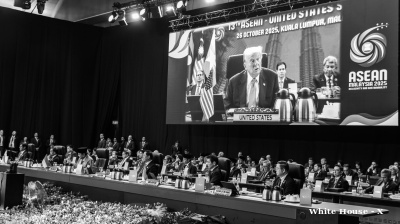Russia is one of the few places in Europe where infection rates are falling rapidly, and the country is likely to reach “herd immunity by the end of August", according to Russian President Vladimir Putin.
Herd immunity is when some 70% of the population have anti-bodies to fight the virus from either having caught the illness or from inoculation with a vaccine.
Infection rates in Russia were very high and more than 100,000 people have died, in the top seven highest death tolls (according to World Health Organisation figures) in the world. At the same time, Moscow mayor Sergey Sobyanin, who called for the first lockdown, said that half of the capital’s population had been infected with the virus.
However, Russia also rapidly developed a highly effective vaccine and started mass inoculations in December. Initially hampered by production bottlenecks, the production capacity has soared in the last months, giving a noticeable uplift to the country’s overall industrial output numbers.
In an interview with the state-owned Rossiya-1 TV channel, answering a question when the pandemic restrictions in Russia could be lifted and the country would return to a normal life, the president assured that "this will happen,” Tass reports.
He recommended Russians "listen to specialists" who say that restrictions could be lifted "after herd immunity is developed.”
"In order to make this happen, some 70% of adult population should get the jab. If [mass vaccination] goes at the same pace as now, I believe that in summer, by the end of summer we will achieve, we should achieve this figure," the president said as cited by Tass.
Putin has only just been inoculated himself, although he has been eligible from the start. Moreover, he chose to do it in private unlike other world leaders who have got the jab on telly to assure their voters it is safe. Putin has not explained why he has been so camera shy, nor did he say which of the three Russian vaccines he took, leading to speculation that he is suffering from some chronic illness.
The decision to be injected in private is especially suspect, as according to one survey some 76% of Russian say they will not get vaccinated due to lingering fears over the medicine’s safety. Putin was a lot less cautious when one of his two daughters was a volunteer for the vaccine’s trials at the end of last year.
The president has reported some mild side-effects from the inoculation, but he has not stopped working, according to Russian presidential spokesman Dmitry Peskov.
Three vaccines against COVID-19 have been registered in Russia. The first vaccine registered in the country and in the world is Sputnik V, developed by the Gamaleya Center of Russia’s Health Ministry. It was certified on August 11, 2020.
EpiVacCorona by the Vector State Research Center of Virology and Biotechnology of the consumer rights watchdog was registered in October 2020.
The third vaccine, CoviVac by the Russian Academy of Sciences’ Chumakov Center, was authorised by the Health Ministry in February.
The first round of inoculations began in December and Russia launched the mass vaccination programme in January this year. According to the latest data, more than 6mn Russians have received one vaccine dose and more than 4mn of them have taken two doses.
Due to the production constraints Russia has actively been seeking out production partners in other countries and has certified the vaccine in over 50 countries.
The Russian Direct Investment Fund (RDIF) that has backed the vaccine development and promoted it abroad applied to the EU and the World Heath Organisation for registration in January and both bodies are expected to sign off on the vaccine soon. The RDIF has also recently been in talks with Germany, France, Italy and Spain about setting up local production.
Most EU states are waiting for the European Medical Agency (EMA) to sign off on the drug, but several, including Hungary, have gone ahead with purchases of Sputnik V before the head European medical authority has given its approval. German Chancellor Angela Merkel said last week that it was a distinct possibility that Europe would start buying Sputnik V once the EMA has given the thumbs up.
The RDIF also did a production deal with China’s Shenzhen Yuanxing Gene-tech facility, which has agreed to produce over 60mn doses of Russia’s Sputnik V vaccine. Together with other partners, the RDIF says it could be manufacturing 2bn doses a year this year.
News
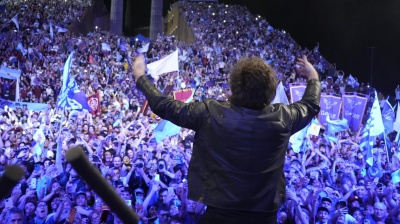
Milei celebrates resounding victory in Argentina's midterm elections
Argentine President Javier Milei scored a major win for his La Libertad Avanza (LLA) party in Argentina's October 26 midterm legislative elections, as the party obtained approximately 40.84% of the nationwide vote with 99.14% of the votes counted.
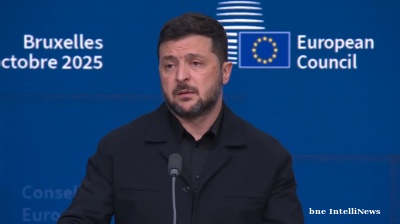
Zelenskiy accuses China of aiding Russia’s war effort through industrial and military support
Ukrainian President Volodymyr Zelenskiy accused China of materially supporting Russia’s military-industrial complex, providing key technologies and resources that have enabled Moscow to sustain and scale its war effort against Ukraine.
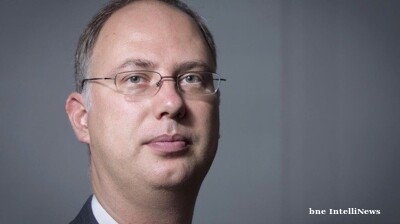
US Treasury Secretary Bessent blasts “Russian propagandist” special envoy Dmitriev in Washington PR debacle
A trip to Washington by the Kremlin’s special business envoy Kirill Dmitriev days after the US imposed new oil sanctions turned into a debacle after US Treasury Secretary Scott Bessent blasted him as a “Russian propagandist.”
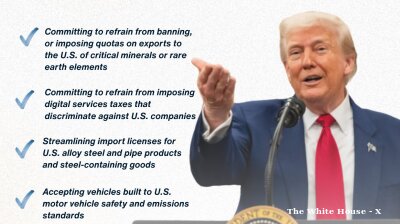
Trump pledges enduring support for Southeast Asia as new trade deals signed
During his visit to Southeast Asia, US President Donald Trump declared that Washington would remain a steadfast ally to the region, as he signed a series of trade agreements with four ASEAN member states.
